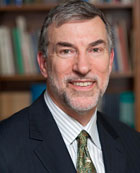Relating the humanities directly to the progression of individuals, America
 On February 21, Messiah College warmly welcomed Geoffrey Galt Harpham as the keynote speaker for the College’s annual Humanities Symposium. Harpham currently acts as the president and director of the National Humanities Center in Research Triangle Park, North Carolina – the only institute in the world dedicated completely to the humanities. After being trained as a literary scholar, Harpham released several books, one of which guided his lecture at the Symposium. Among the many issues addressed in his book, “The Humanities and the Dream of America,” Harpham mainly focuses on how the humanities were formed and what role the American academy played in its formation.
On February 21, Messiah College warmly welcomed Geoffrey Galt Harpham as the keynote speaker for the College’s annual Humanities Symposium. Harpham currently acts as the president and director of the National Humanities Center in Research Triangle Park, North Carolina – the only institute in the world dedicated completely to the humanities. After being trained as a literary scholar, Harpham released several books, one of which guided his lecture at the Symposium. Among the many issues addressed in his book, “The Humanities and the Dream of America,” Harpham mainly focuses on how the humanities were formed and what role the American academy played in its formation.
Harpham began his lecture, “Melancholy in the Midst of Abundance,” by taking his audience back to a post-World War II America. Before this time, people viewed the humanities simply as a waste of time since, as they believed, nothing beneficial could result from such studies. However, following the war, American citizens began to experience a change of heart regarding the humanities. Instead of being viewed as a waste of time, they felt as if the humanities could represent the crowning achievement of a nation which just prevailed in war. This nation would build itself on such a foundation of economic, political, and social power, that citizens could turn their attention towards the humanities. People of this day started viewing a pursuit of the humanities directly related to the progression of the nation and of mankind. This new appreciation of the art guided the American academy and led to works such as the Harvard “Redbook”.
According to Harpham, the Harvard Redbook was an influential work that supported the spread of the humanities. In fact, this book was known to be a symbol of renewal as it revolved around the idea of cultivating the humanities and society as a whole. Harpham also spoke about the stances made in the Redbook on the goals of education. According to the book, education should produce unity and character in American society, but the most important aim is for education to cultivate a proper vision of humanity; one in which citizens are unified by wisdom – creating what Harpham coined as “the whole man.” But, just what is the “whole man?” As Harpham described, whole men are those who appreciate the arts and humanities, and those who are reflective and curious about such topics. In addition, these men possess freedom as well as a strong sense of citizenship. This, in essence, is the purpose of education: to produce whole men and women. And, by achieving this goal, it was believed that one could experience a freer and more abundant life.
In today’s society, it is important to remember how the study of the humanities was formed and shaped by our nation’s past. In addition, as Harpham stressed, it is equally important to realize where the humanities is headed and to aid in its advancement. According to Jimmy Carter, the former president whom Harpham quoted multiple times throughout his lecture, “We must stress how limited our sense of national purpose is, indeed how imperiled our civilization is, if the humanities are exiled to a peripheral role of irrelevance.”
Story by Jessica Kern `15.




